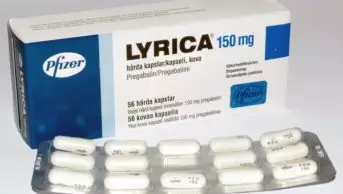
Department of Health
The UK government will be able to require pharmaceutical companies to reduce the price of a generic medicine or to bring in other controls on a company’s unbranded medicine under a proposed bill to control drug prices.
“The government intends to use this power to limit the price of unbranded medicines where competition in the market fails and companies charge the NHS unreasonably high prices for generic medicines,” the Department of Health says.
One of the government’s aims is to align the voluntary Pharmaceutical Price Regulation Scheme (PPRS) and the statutory equivalent, which could save the NHS up to £88m a year.
The Health Service Medical Supplies (Costs) Bill will allow the government to step in and quash what it describes as “unreasonable price increases”, whether the company is part of the voluntary or the statutory scheme. Non-compliance and non-payment could result in penalties of up to £10,000 daily, or a single penalty of up to £100,000.
In a statement, health minister Lord Prior of Brampton says: “This government values the contribution made by the pharmaceutical sector to UK industry and to patients, but on behalf of taxpayers and the NHS we must ensure that we get the best possible value for money – and this bill will help us to do just that.” He adds that all money saved will be reinvested in the NHS.
The number of pharmaceutical companies involved in significant price hikes that are damaging to both the NHS and the reputation of the industry is small, and the Association of the British Pharmaceutical Industry (ABPI), a trade body of drug manufacturers, is currently looking carefully at the bill to ensure that the government’s response is proportionate and appropriately targeted.
“The ABPI acknowledges the need for clarity on pricing on older medicines and has been calling on the government to take action on the issue of significant price rises in a small number of those medicines where a competitive market is not working as effectively,” says Richard Torbett, executive director of commercial at the ABPI.
Warwick Smith, director general of the British Generic Manufacturers Association (BGMA), says it understands the government’s desire to monitor and control the prices of NHS medicines where they are not effectively limited by competition.
“[But] it is important that the success of the UK’s arrangements in delivering these very low prices across a large number of products is not undermined by action designed to deal with recent price increases in 1% of generic medicines, which may or may not be justified,” he says.
“Experience in other markets that lack flexibility due to more rigid price setting policies shows that shortages of medicines are more common, putting patient care at risk, as well as delivering prices that are on average higher than in the UK.”
Price gouging – dramatic hikes from companies that corner the market in unbranded and off patent drugs that have no competition – came to public notice when Turing Pharmaceuticals raised the price of Daraprim (pyrimethamine), an antiparasitic, by more than 5000% in the United States. In the UK, AMCo, a British division of Canadian company Concordia that focuses on generic medicines with little competition, has been accused of increasing the price of prescription eye drops for bacterial conjunctivitis by more than 14-fold. An investigation by The Times highlighted cases in the UK where drug prices were increased by at least 1000%, with hydrocortisone tablets going up by 12,500% from 70p to £85.


